★★½
“Taken-ish.”
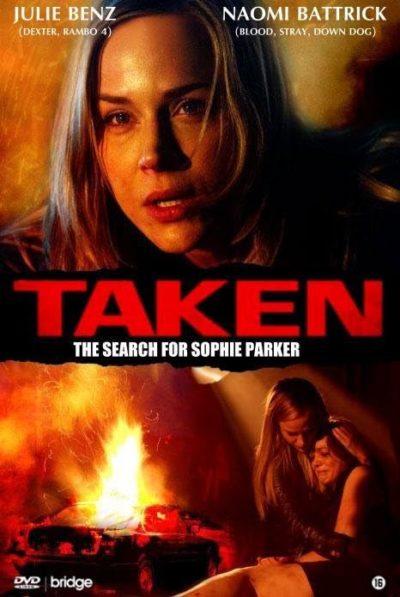 For a Lifetime Original Movie, this is actually close to the best of its kind I’ve seen., but it is surely docked points for being a thoroughly shameless knock-off of a certain Liam Neeson movie, all the way down to the title. As there, we have an American abroad, searching for a teenage daughter who has been kidnapped by even more foreign sex-traffickers. They will stop at nothing – nothing, I tell ya! – to recover their child, be that personal danger or interference from local corrupt police. The main difference is it’s a heroine, NYPD detective Stevie Parker (Benz), with the location being shifted from Paris to Moscow – though under current circumstances, the location has not aged well.
For a Lifetime Original Movie, this is actually close to the best of its kind I’ve seen., but it is surely docked points for being a thoroughly shameless knock-off of a certain Liam Neeson movie, all the way down to the title. As there, we have an American abroad, searching for a teenage daughter who has been kidnapped by even more foreign sex-traffickers. They will stop at nothing – nothing, I tell ya! – to recover their child, be that personal danger or interference from local corrupt police. The main difference is it’s a heroine, NYPD detective Stevie Parker (Benz), with the location being shifted from Paris to Moscow – though under current circumstances, the location has not aged well.
Certainly, letting your daughter Sophie (Battrick) now go by herself to Russia, even if she is friends with the ambassador’s daughter, would feel like utterly irresponsible parenting. Even a decade ago when this was made, it seems questionable, and concerns prove justified. Despite the presence of lurking CIA minder Nadia (Bailey), it’s not long before Sophie and her pal have snuck out, gone to a nightclub, been roofied, and are on their way to becoming the playthings for some rich tycoon, courtesy of the Chechen mafia. Mama Parker is not happy. She’s on the first plane to Moscow, where she teams with Nadia and reluctant local cop Mikhail (Byron, who’s English, though his IMDb credits are littered with Eastern Europeans!) to work her way up the chain and rescue the girls.
It’s never less than glaringly obvious, and the first thirty minutes are especially excruciating in this department, not least due to a shoehorned romance for Stevie: it is Lifetime, after all. Once she arrives in Russia – actually, Bulgaria standing in for it – while things don’t get any less predictable, the energy level ramps up several degrees, and this becomes considerably more watchable. Benz has the necessary intensity to be the unstoppable force she needs to be, and pairing her with another woman is an additional wrinkle that works nicely. The action is a bit limited, with the only real sequence of note at the end, when the pair storm the hotel where Sophie is being held before her departure, followed by a chase back to US sovereign territory at the embassy.
There’s no denying a major case of American saviour complex here, with the locals being portrayed as useless or actively evil, and needing the help of the USA in order for any action to be taken. Chris noted the presence of a large Stars and Stripes in the film’s final shot, and it seems entirely deliberate, reminding viewers that they are now back on safe, i.e. American soil. Yet there is surprising darkness, not least in the uncompromising fate meted out to the corrupt official. After a start where this struggled to hold my attention, by the end I was being just about adequately entertained. Given the source, that’s high praise indeed.
Dir: Don Michael Paul
Star: Julie Benz, Amy Bailey, Andrew Byron, Naomi Battrick





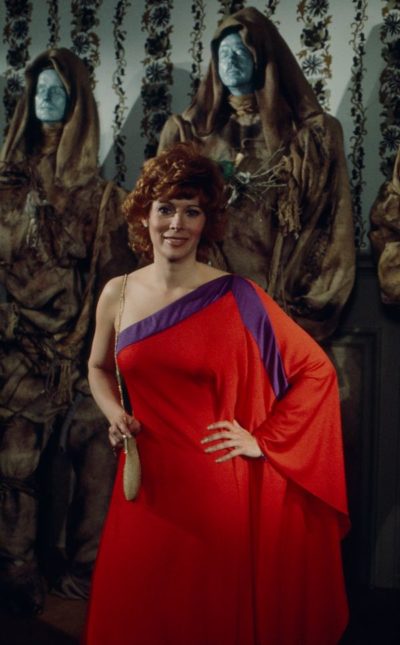 No, not the eighties version of Brenda Starr: that is well known, and justifiably much derided, to the point it didn’t even reach the necessary level for inclusion here. But neither was it the first version of the comic-strip to reach the screen. Well, at least the small screen. There had previously been a 1945 series, Brenda Starr, Reporter, though some reports describe this as nearly action-free. But the late seventies saw two television efforts: as well as the one under discussion here, three years later in 1979, there was an unsold television pilot movie (now apparently lost) in which Sherry Jackson played the intrepid girl journalist. In contrast, this appears to have been intended as a stand-alone from the get-go. While I’m sure ABC wouldn’t have minded had this been successful enough to become a franchise, it suffers from much the same problem as all the other adaptations, with a heroine that’s too passive to pass muster
No, not the eighties version of Brenda Starr: that is well known, and justifiably much derided, to the point it didn’t even reach the necessary level for inclusion here. But neither was it the first version of the comic-strip to reach the screen. Well, at least the small screen. There had previously been a 1945 series, Brenda Starr, Reporter, though some reports describe this as nearly action-free. But the late seventies saw two television efforts: as well as the one under discussion here, three years later in 1979, there was an unsold television pilot movie (now apparently lost) in which Sherry Jackson played the intrepid girl journalist. In contrast, this appears to have been intended as a stand-alone from the get-go. While I’m sure ABC wouldn’t have minded had this been successful enough to become a franchise, it suffers from much the same problem as all the other adaptations, with a heroine that’s too passive to pass muster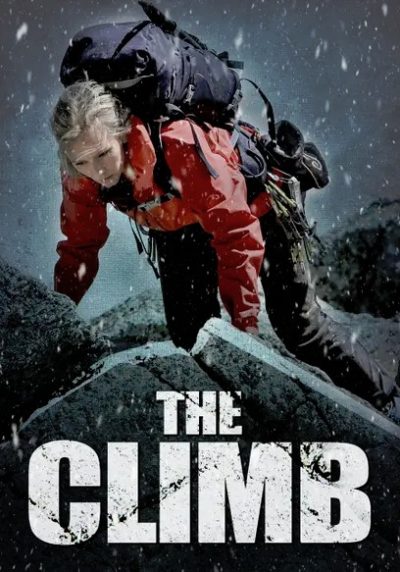 I was really surprised to discover that this French film is actually made for television. It has a certain gravitas and thoughtfulness to it, that you rarely find in a genre which is (often rightfully) derided as being formulaic and cliched. This doesn’t escape those criticisms entirely – in particular, there’s a “Disease of the Week” subplot, which does feel as it it might have strayed in from Lifetime or Hallmark. However, even there, it feels handled in a relatively natural manner, rather than being shoehorned in there to elicit sympathy from the viewer. It definitely looks better than most TVMs out of Hollywood. Whether this is down to Félix von Muralt’s cinematography, or simply the stunning Alpine landscapes, is open to debate.
I was really surprised to discover that this French film is actually made for television. It has a certain gravitas and thoughtfulness to it, that you rarely find in a genre which is (often rightfully) derided as being formulaic and cliched. This doesn’t escape those criticisms entirely – in particular, there’s a “Disease of the Week” subplot, which does feel as it it might have strayed in from Lifetime or Hallmark. However, even there, it feels handled in a relatively natural manner, rather than being shoehorned in there to elicit sympathy from the viewer. It definitely looks better than most TVMs out of Hollywood. Whether this is down to Félix von Muralt’s cinematography, or simply the stunning Alpine landscapes, is open to debate.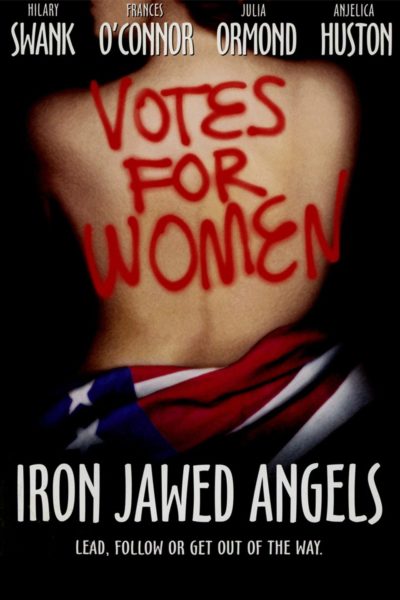 There’s a fascinating story to be told about the struggle by American women to get the vote. Unfortunately, this isn’t it. Rather than being content to tell the story of the battle and those who fought in it, von Garnier (a German director who gave us
There’s a fascinating story to be told about the struggle by American women to get the vote. Unfortunately, this isn’t it. Rather than being content to tell the story of the battle and those who fought in it, von Garnier (a German director who gave us 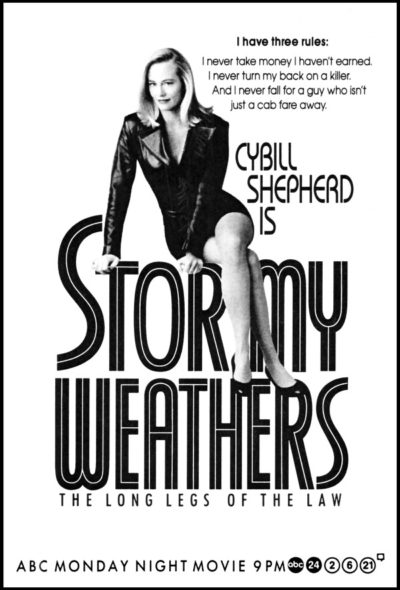 Within ten seconds of Chris having entered the room when this was on, she asked, “Are you watching Moonlighting?” No, I wasn’t – but it’s certainly a valid question. Just a couple of years earlier, Shepherd had finished off a run playing a private eye alongside Bruce Wills on that highly successful show. And here she is, again playing a private investigator on television, with a fondness for cracking wise and showing off her legs. What
Within ten seconds of Chris having entered the room when this was on, she asked, “Are you watching Moonlighting?” No, I wasn’t – but it’s certainly a valid question. Just a couple of years earlier, Shepherd had finished off a run playing a private eye alongside Bruce Wills on that highly successful show. And here she is, again playing a private investigator on television, with a fondness for cracking wise and showing off her legs. What 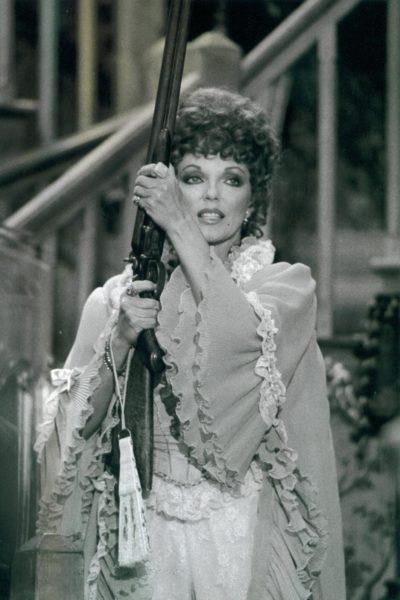 This sprightly TV movie from 1982 boasts a rather decent cast and, at least in the first half, manages to go in unexpected and interesting direction. It does end up descending into rather familiar territory thereafter, and the finale doesn’t manage to be as rousing as it should be. Yet it managed to keep my interest, and as this genre goes, that probably makes it better than average. It takes place in the last stages of the American Civil War, when the Southern women of Sweetwater have been left bereft of men, after the Confederate Army has recruited them all to their cause. Newly arrived in town is doctor Maggie McCulloch (Barnes), who has arrived to help her ailing aunt, Annie (Collins). She is shocked to discover Annie is less the mine owner touted in her letters, and more the owner of the town brothel.
This sprightly TV movie from 1982 boasts a rather decent cast and, at least in the first half, manages to go in unexpected and interesting direction. It does end up descending into rather familiar territory thereafter, and the finale doesn’t manage to be as rousing as it should be. Yet it managed to keep my interest, and as this genre goes, that probably makes it better than average. It takes place in the last stages of the American Civil War, when the Southern women of Sweetwater have been left bereft of men, after the Confederate Army has recruited them all to their cause. Newly arrived in town is doctor Maggie McCulloch (Barnes), who has arrived to help her ailing aunt, Annie (Collins). She is shocked to discover Annie is less the mine owner touted in her letters, and more the owner of the town brothel.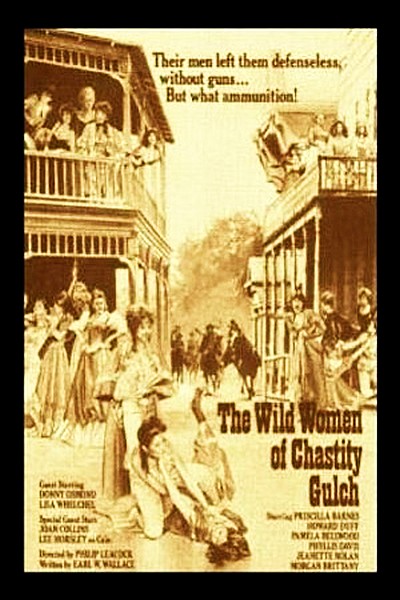 That aside, the plot unfolds largely as you’d expect. There’s the initial tension between whores and housewives, and the women struggle to come to terms with the everyday business of running the town. For example, there’s a fire drill, which ends up with half the ladies thrashing around in shallow water, and some other slapstick involving whitewash, that is somewhere between lightly amusing and embarrassing. However, Barnes – at the time a sitcom star in Three’s Company – does a very good job of keeping the film grounded, and the supporting cast help admirably in that aspect. Collins is particularly good, projecting an attitude which clearly proclaims she will take no shit from anyone.
That aside, the plot unfolds largely as you’d expect. There’s the initial tension between whores and housewives, and the women struggle to come to terms with the everyday business of running the town. For example, there’s a fire drill, which ends up with half the ladies thrashing around in shallow water, and some other slapstick involving whitewash, that is somewhere between lightly amusing and embarrassing. However, Barnes – at the time a sitcom star in Three’s Company – does a very good job of keeping the film grounded, and the supporting cast help admirably in that aspect. Collins is particularly good, projecting an attitude which clearly proclaims she will take no shit from anyone. After her truck-driving husband is injured in an attempted hijack, Sweetiepie (Darby) finds herself in a bind. They’re way behind on payments for the truck, to the point that it’s about to be repossessed by C.W. Douglas (Stanton) of Vehicle Retrievals Incorporated. In desperation, she hires experienced driver Flatbed Annie (Potts) to partner with her, working the necessary delivery routes to pay off their debt. However, Douglas is not the only threat the pair face on the highway. The failed hijack was intended to recover a package which has surreptitiously been placed in the truck during a run to Mexico, and its owners remain very keen to recover their merchandise from the new operators,
After her truck-driving husband is injured in an attempted hijack, Sweetiepie (Darby) finds herself in a bind. They’re way behind on payments for the truck, to the point that it’s about to be repossessed by C.W. Douglas (Stanton) of Vehicle Retrievals Incorporated. In desperation, she hires experienced driver Flatbed Annie (Potts) to partner with her, working the necessary delivery routes to pay off their debt. However, Douglas is not the only threat the pair face on the highway. The failed hijack was intended to recover a package which has surreptitiously been placed in the truck during a run to Mexico, and its owners remain very keen to recover their merchandise from the new operators,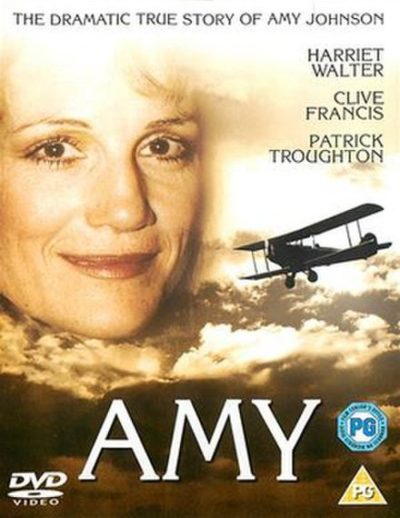 It’s interesting to compare the approach taken in this biopic of aviation heroine Amy Johnson, made in 1984, with the one over 40 years earlier (and shortly after her death) in
It’s interesting to compare the approach taken in this biopic of aviation heroine Amy Johnson, made in 1984, with the one over 40 years earlier (and shortly after her death) in 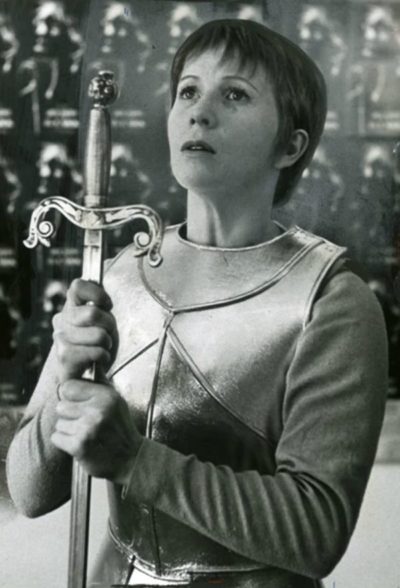 This was originally a French play, L’Alouette, written by Jean Anouilh in 1952. Three years later, a translated version was brought to Broadway, where it ran for 226 performances from November 1955 until June 1956. Julie Harris played Joan, and there was quite a star-studded cast behind her, including Boris Karloff as Bishop Cauchon, Christopher Plummer and Theodore Bikel. It was critically acclaimed, Harris winning that year’s Tony Award as Best Leading Actress, and Karloff being nominated as Best Leading Actor. The following February, a TV adaptation was screened in the United, though wasn’t the first or the last such. In November 1956, the BBC screened their version, with Hazel Penwarden as Joan, and a supporting cast including Michael Caine. Additionally, 1958 saw an Australian version, though it seems notable only for having Olivia Newton-John’s father in the cast.
This was originally a French play, L’Alouette, written by Jean Anouilh in 1952. Three years later, a translated version was brought to Broadway, where it ran for 226 performances from November 1955 until June 1956. Julie Harris played Joan, and there was quite a star-studded cast behind her, including Boris Karloff as Bishop Cauchon, Christopher Plummer and Theodore Bikel. It was critically acclaimed, Harris winning that year’s Tony Award as Best Leading Actress, and Karloff being nominated as Best Leading Actor. The following February, a TV adaptation was screened in the United, though wasn’t the first or the last such. In November 1956, the BBC screened their version, with Hazel Penwarden as Joan, and a supporting cast including Michael Caine. Additionally, 1958 saw an Australian version, though it seems notable only for having Olivia Newton-John’s father in the cast.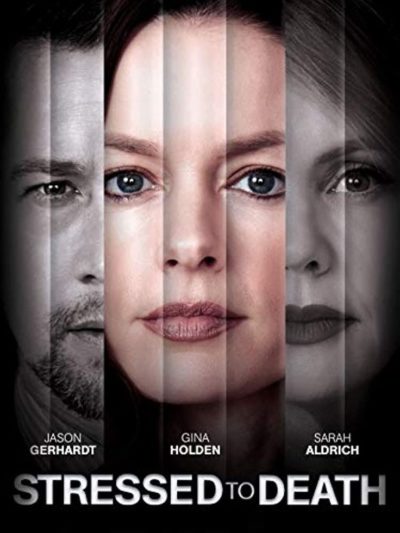 The concept here is intriguing. It’s just the execution – and the script in particular – which is bad. A robbery at a convenience store ends in the death of David, the husband to Victoria Garrett (Aldrich). She blames the paramedic on the scene, former soldier Maggie Hart (Holden), for the loss of her spouse, though the incident hits Maggie equally hard. She quits her job, raising daughter Jane (Blackwell) with her husband, commercial real-estate agent, Jason (Gerhardt). But Victoria hasn’t moved on – in probably the film’s most memorably loopy elements, she feeds her husband’s ashes to a pot-plant she calls David, to which she chats. She’s also clearly a believer in that saying about revenge being served cold.
The concept here is intriguing. It’s just the execution – and the script in particular – which is bad. A robbery at a convenience store ends in the death of David, the husband to Victoria Garrett (Aldrich). She blames the paramedic on the scene, former soldier Maggie Hart (Holden), for the loss of her spouse, though the incident hits Maggie equally hard. She quits her job, raising daughter Jane (Blackwell) with her husband, commercial real-estate agent, Jason (Gerhardt). But Victoria hasn’t moved on – in probably the film’s most memorably loopy elements, she feeds her husband’s ashes to a pot-plant she calls David, to which she chats. She’s also clearly a believer in that saying about revenge being served cold.